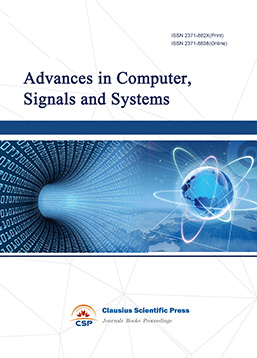A Study and Implementation of an Optimized University Library Book Recommendation System Based on Artificial Intelligence and Python Crawler Scraping Technology
DOI: 10.23977/jaip.2023.060202 | Downloads: 116 | Views: 2035
Author(s)
Ke Luo 1
Affiliation(s)
1 Institute of Library, Shaoyang University, Shaoyang, Hunan, China
Corresponding Author
Ke LuoABSTRACT
Given the limitations of space and funding in libraries, achieving maximum efficiency has become a major challenge in the library world. With the continuous development of artificial intelligence technology, the degree of automation in book recommendation systems has also increased, requiring traditional procurement methods to be continuously optimized. By combining Python web crawling technology and precision procurement models, a book recommendation mechanism was constructed to transform book recommendations from traditional manual collection to automated assistance and prediction through the precise procurement model based on the recommendation list, thereby achieving the automation of book procurement. This mechanism improves the efficiency and accuracy of book procurement, provides a solution for the limited resources and funding of libraries, and also provides better services for readers.
KEYWORDS
Book recommendation, python crawler technology, artificial intelligence, accurate purchasing modelCITE THIS PAPER
Ke Luo, A Study and Implementation of an Optimized University Library Book Recommendation System Based on Artificial Intelligence and Python Crawler Scraping Technology. Journal of Artificial Intelligence Practice (2023) Vol. 6: 9-17. DOI: http://dx.doi.org/10.23977/jaip.2023.060202.
REFERENCES
[1] Ameen K, Haider J S. Book selection strategies in university libraries of pakistan: an analysis. Library Collections, Acquisitions and Technical Services, 2007, 31(3):208-219.
[2] Xie Ling. An Empirical Research on Recommendation System of Wuhan University Library. Research on Library Science, 2016 (8):74-78.
[3] Xu Xinqiao, Liu Hua, Zhang Xinyun. An Empirical Research of Recommendation System of Shanghai University Library. Research on Library Science, 2014 (24):5-9.
[4] Xie Ling. Development Status and Improvement Measures of Literature Recommendation System in "985 Project" Universities Libraries. Library Work in Colleges and Universities, 2015, 35(6):41-44.
[5] Chen Cong, Zhou Lizhen. Tracing and Filtering of Fake Data Based On Python Crawler Technology. Computer Simulation, 2021, 38(3):346-350.
[6] Zhang Liu, Chen Yifei, Yuan Jiawei, Pei Ziquan, Mei Pengjiang. Application of Stacking Ensemble Learning Model in Blended Performance Classification and Prediction. Computer Systems and Applications, 2022, 31(7):325−332.
[7] Duan Jidong, Liu Shuangrong, Ma Kun, Sun Runyuan. Text Sentiment Classification Method Based on Ensemble Learning. Journal of University of Jinan (Science and Technology, 2019, 33(6):483-488.
[8] Stephen E.Robertson, Hugo Zaragoza. The probabilistic relevance framework: bm25 and Beyond. Foundations and Trends in Information Retrieval, 2009, 3(4):333-389.
[9] G. Ke, Q. Meng, T. Finley, T. Wang, W. Chen, W. Ma, Q. Ye, T.-Y. Liu. LightGBM: a highly efficient gradient boosting decision tree. In: Advances in neural information processing systems, 2017: 3146-3154.
| Downloads: | 16903 |
|---|---|
| Visits: | 608869 |
Sponsors, Associates, and Links
-
Power Systems Computation

-
Internet of Things (IoT) and Engineering Applications

-
Computing, Performance and Communication Systems

-
Advances in Computer, Signals and Systems

-
Journal of Network Computing and Applications

-
Journal of Web Systems and Applications

-
Journal of Electrotechnology, Electrical Engineering and Management

-
Journal of Wireless Sensors and Sensor Networks

-
Journal of Image Processing Theory and Applications

-
Mobile Computing and Networking

-
Vehicle Power and Propulsion

-
Frontiers in Computer Vision and Pattern Recognition

-
Knowledge Discovery and Data Mining Letters

-
Big Data Analysis and Cloud Computing

-
Electrical Insulation and Dielectrics

-
Crypto and Information Security

-
Journal of Neural Information Processing

-
Collaborative and Social Computing

-
International Journal of Network and Communication Technology

-
File and Storage Technologies

-
Frontiers in Genetic and Evolutionary Computation

-
Optical Network Design and Modeling

-
Journal of Virtual Reality and Artificial Intelligence

-
Natural Language Processing and Speech Recognition

-
Journal of High-Voltage

-
Programming Languages and Operating Systems

-
Visual Communications and Image Processing

-
Journal of Systems Analysis and Integration

-
Knowledge Representation and Automated Reasoning

-
Review of Information Display Techniques

-
Data and Knowledge Engineering

-
Journal of Database Systems

-
Journal of Cluster and Grid Computing

-
Cloud and Service-Oriented Computing

-
Journal of Networking, Architecture and Storage

-
Journal of Software Engineering and Metrics

-
Visualization Techniques

-
Journal of Parallel and Distributed Processing

-
Journal of Modeling, Analysis and Simulation

-
Journal of Privacy, Trust and Security

-
Journal of Cognitive Informatics and Cognitive Computing

-
Lecture Notes on Wireless Networks and Communications

-
International Journal of Computer and Communications Security

-
Journal of Multimedia Techniques

-
Automation and Machine Learning

-
Computational Linguistics Letters

-
Journal of Computer Architecture and Design

-
Journal of Ubiquitous and Future Networks


 Download as PDF
Download as PDF